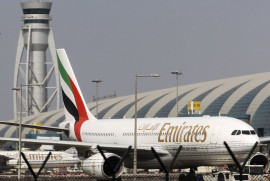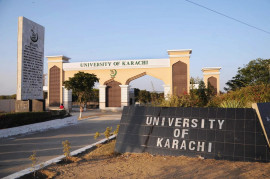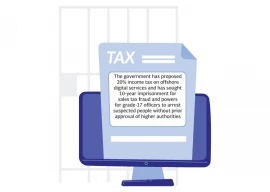
Amid the wildlife departments’ failure to determine the locations at which pangolins are being poached and whose hands are behind the smuggling of the animals’ scales, two Chinese citizens have approached customs officials to release the scales seized five months back.
Pakistan Customs officials had confiscated 145 kg of pangolin scales from the luggage of two Chinese nationals — Luo-Ruiyuan and Ying — at Benazir Bhutto International Airport Islamabad (BBIA) in April. The pair was later allowed to leave the airport after clearing customs formalities. According to an estimate, the value of the seized scales is approximately $150 million in international markets.

Since then, district and provincial wildlife departments have failed to determine the poaching locations and arrest the hunters responsible for killing pangolins and selling their scales to foreign buyers, most of whom are Chinese.
The Ministry of Commerce has now sought replies from the Climate Change Division and the Wildlife Department on whether the confiscated scales could be released from the customs warehouse in response to the Chinese request.
The sources said that the Chinese nationals have filed a case with the Islamabad customs collector demanding the release of the seized scales.
Sources in the Climate Change Division said the first step should be investigating where the pangolins were killed and what measures have been taken by provincial wildlife departments to address poaching and punish poachers.
The shy and harmless mammal, commonly known as the Indian pangolin, is mostly found in Azad Jammu and Kashmir, Sindh, southern Punjab and the Potohar region including Chakwal, Attock, Jhelum and Rawalpindi.

Growing demand in China for its scales, which are used in traditional Chinese medicine, has prompted many locals to jump on the bandwagon without regard for the rarity of the animal in the country. In some parts of the country, every catch or kill can net the poacher between Rs10,000 and Rs15,000, depending on the size of the animal.
It is feared that the mass poaching may cause them to disappear from Pakistan.
“The animal costs between Rs8,000 and Rs12,000 in the local market, whereas its meat is sold at $200 per pound in the international market,” a wildlife official from AJK told The Express Tribune, quoting the local price in the state.
Pakistan is signatory to the “Convention on International Trade in Endangered Species of Fauna and Flora”, under which cross-border movement of pangolins, their scales or their meat is illegal.
According to sources in the wildlife department, pangolins have become the most frequently seized mammals in Asia’s illegal wildlife trade, as smugglers sell them to meet high culinary and medicinal demands in China, where the animals are a protected species.
The sources elaborated on the torturous death involved in removing scales from live animals. They said local poachers put live animals in cauldrons of boiled water to ease removal of scales and that it takes at least three animals to produce just 1kg of scale.
Legal protections
The pangolin is a protected species under provincial regulations and according to the country’s wildlife regulations, a minimum sentence of two-years imprisonment can be awarded to violators. The law, however, is laxly enforced.
In 2012, pangolins were declared endangered species by the International Union for Conservation of Nature.
Published in The Express Tribune, September 26th, 2014.
COMMENTS (2)
Comments are moderated and generally will be posted if they are on-topic and not abusive.
For more information, please see our Comments FAQ


1737550160-0/BeFunky-collage-(21)1737550160-0-165x106.webp)

1719319701-0/BeFunky-collage-(10)1719319701-0-165x106.webp)








1737452260-0/Gaddafi-stadium-(2)1737452260-0-270x192.webp)









hi.. i am looking for a pangolin purchaser... i want to sell pangoline.. interested buyers can contact me only... +923244430543
HELLO HOW ARE YOU DEAR SIR, WE HAVE SOME PINGOLIN 5KG 8KG 10+KG IF YOU INTEREST PEASE MAIL US WAITING FOR YOUR ANSWER REGARD